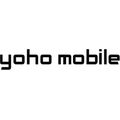

Find the best eSIM for Sierra Leone
























































































































































































































































































































































































































































































































































































































Unfiltered Customer Reviews

I bought the Africa pack and I was in Liberia and Sierra Leone and didn't have connection after 3 days not for a single minute. Not able to solve it and asked for my money back. I am still waiting
Frequently Asked Questions
How many travel eSIM brands (providers) are available for use in Sierra Leone, and how many prepaid data plans are there?
There are more than 50 providers and more than 700 prepaid data plans available for Sierra Leone. Because there is a wide variety of options, travelers can easily find an eSIM that suits their needs.
Are there any unlimited data eSIM plans available for Sierra Leone?
Yes, there is at least one unlimited data option for travelers in Sierra Leone. Yesim offers a 1‑day unlimited plan that can be activated via eSIM and is priced between $18.90 and $28.36 USD. The plan allows tethering and uses 5G networks, although the carrier may throttle speeds after a certain usage threshold. No other provider in the current listings offers a truly unlimited data eSIM for Sierra Leone, so this is the sole option available if you need unlimited connectivity during your visit.
What are the major mobile networks available for a travel eSIM in Sierra Leone?
Sierra Leone's mobile network infrastructure is primarily supported by the following major Mobile Network Operators (MNOs):
Africell: Established in 2005, Africell is a leading telecommunications provider in Sierra Leone, offering a range of services including data, voice, SMS, and mobile money products.
Orange Sierra Leone: Formerly known as Airtel Sierra Leone, Orange is a significant player in the country's telecom sector, providing various mobile services such as prepaid and postpaid plans, 3G and 4G data services, and international roaming.
QCell Sierra Leone: Also known as Smart Mobile, QCell is a subsidiary of QCell Gambia and offers mobile services including prepaid and postpaid plans, data services, and international roaming.
Sierratel: The state-owned Sierra Leone Telecommunications Company provides mobile services, including voice and data, contributing to the country's telecommunications landscape.
In Sierra Leone, Mobile Virtual Network Operators (MVNOs) are present, offering mobile services by leasing access from major carriers. However, most travel eSIMs rely on the infrastructure of the primary MNOs rather than MVNOs.
Can I get a travel eSIM with a phone number and SMS for Sierra Leone?
Travel eSIM plans that provide a phone number with both voice and SMS are available for Sierra Leone. Providers that offer such options include GlobaleSIM and Roamify. GlobaleSIM supplies a range of Sierra Leone‑targeted plans from 1GB to 20GB, valid 7 to 30 days, with prices starting around $6 and rising to $55. These plans use the +1 dialing code, which matches Sierra Leone’s code, so the number is local; voice is both inbound and outbound, and SMS is inbound only. Roamify also offers Sierra Leone eSIMs, such as a 1GB/7‑day plan for $15 and a 10 GB/30‑day plan for $35. These plans feature inbound and outbound voice and SMS. However, the Roamify 10 GB/30‑day option uses the +33 dialing code, which is foreign to Sierra Leone, so the phone number would be a French number rather than a local Sierra Leone number.
Summarized by Gen AI. Last updated:
All eSIM providers available in Sierra Leone


























































